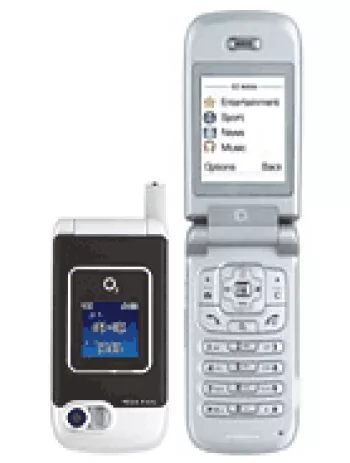
Overview of O2 XDA IIi
The O2 XDA IIi was a remarkable piece of technology at the time of its release. Announced in the fourth quarter of 2004, this device quickly gained popularity among tech enthusiasts for its innovative features and sleek design. Manufactured by HTC and marketed by O2, the XDA IIi combined the functionalities of a PDA with those of a mobile phone, paving the way for future smartphones.
Design and Build
The O2 XDA IIi boasts a robust yet sleek design. Measuring 130 x 70 x 19 mm and weighing 190 grams, it was considered a compact and lightweight device during its period. Its build featured a Mini-SIM card slot and came with a TFT resistive touchscreen, offering 65K colors for a vibrant display. The 3.5-inch screen, while small by today's standards, was quite substantial at the time, enabling users to interact with the device efficiently. Its resolution of 240 x 320 pixels offered a decent display and adequate readability, given its 114 ppi density.
Display
The 3.5-inch TFT resistive touchscreen was among the standout features of the O2 XDA IIi. Capable of displaying 65K colors, it provided users with a reasonably vibrant viewing experience. Although the touch sensitivity and response might have been somewhat limited due to the technology at the time, it represented significant progress in mobile device interaction, facilitating tasks like browsing, email, and lifestyle apps through touch navigation.
Performance and Hardware
Under the hood, the O2 XDA IIi was powered by an Intel Xscale PXA272 520 MHz CPU. Though modest by today's standards, this processor was efficient enough to handle the multitasking capabilities of the Windows Mobile 2003 SE operating system. This platform allowed the device to manage personal information management tasks alongside telephony functions, making it a practical choice for professionals.
The device came with 128MB of RAM and 96MB ROM, allowing for reasonable performance of applications and storage of data. Additionally, it included a card slot supporting MMC/SDIO for expandable storage, allowing users to store more data and applications as needed.
Camera and Multimedia
Equipped with a 1.3 MP camera, the O2 XDA IIi was capable of taking basic photographs and videos. While meager by modern standards, it was a relevant feature in a time when many mobile phones still lacked integrated cameras.
On the sound front, it featured a loudspeaker and offered vibration and downloadable polyphonic ringtones as alert options. However, it did not include a 3.5mm audio jack, which meant users had to rely on proprietary connections for audio accessories.
Connectivity
For connectivity, the device supported GSM technology with 2G bands GSM 900/1800/1900, ensuring reasonable coverage for voice calls. It offered GPRS Class 10 for data services, although it lacked EDGE support. For local connectivity, the O2 XDA IIi supported Wi-Fi 802.11b, Bluetooth, and an infrared port but lacked GPS positioning and FM radio. The USB connection was proprietary, which limited compatibility with some USB devices.
Operating System and Software
Running Microsoft Windows Mobile 2003 SE PocketPC, the O2 XDA IIi provided a versatile operating environment for running a variety of applications from productivity tools to entertainment apps. Along with basic phone capabilities, this OS allowed for a full-fledged PDA experience, which included calendar management, contact and email handling, and more, effectively pioneering many features that would become standard in later smartphone operating systems.
Battery Life and Management
The device came equipped with a removable Li-Po 1200 mAh battery, which, while small by modern measures, was adequate for the power demands of the time. The battery provided up to 150 hours of standby time and up to 3 hours and 30 minutes of talk time. Users appreciated the removable battery design, which facilitated battery replacement and extended the device's overall lifespan.
Legacy and Impact
The O2 XDA IIi holds a special place in the evolution of mobile devices as it marked a transitional phase towards fully integrated smartphones. Its blend of PDA and mobile phone capabilities foreshadowed the direction and functionalities that modern smartphones would adopt. Despite its eventually becoming discontinued, the device left a legacy of innovation during an important period of technological advancement in mobile communications.
Main Features of O2 XDA IIi
- Network Technology: GSM with support for 900 / 1800 / 1900 bands.
- Display: 3.5 inch TFT resistive touchscreen with 240 x 320 pixels resolution.
- Operating System: Microsoft Windows Mobile 2003 SE PocketPC.
- Processor: Intel Xscale PXA272 520 MHz CPU.
- Memory: 128MB RAM and 96MB ROM with MMC/SDIO card slot expansion.
- Main Camera: 1.3 MP capable of video recording.
- Connectivity: Wi-Fi 802.11b and Bluetooth enabled.
- Infrared Port: Yes
- Battery: Removable Li-Po 1200 mAh battery offering up to 150 hours of standby time.
- Browser: WAP 2.0/xHTML, HTML (PocketIE) support.
Disadvantages of O2 XDA IIi
- Lack of EDGE support for faster internet connectivity.
- Relatively heavy weight at 190 g, which may affect portability.
- Resistive touchscreen may not provide the best touch experience compared to capacitive touchscreens.
- Low screen-to-body ratio (~41.7%) which means less screen space for its size.
- Low screen resolution of 240 x 320 pixels, resulting in a pixel density of ~114 ppi.
- Older operating system Microsoft Windows Mobile 2003 SE PocketPC.
- Limited internal memory of 128MB RAM and 96MB ROM.
- No front-facing camera provided for selfies or video calls.
- Absence of 3.5mm jack, requiring adapters for standard headphones.
- Limited battery life with a talk time of up to 3 hours and 30 minutes.
- Lack of GPS for positioning services.
- No built-in FM radio feature.
- Uses a proprietary USB connector rather than a standard one.

View Also
More Phones
All Rights Reserved +13665 Phones © Mobilawy 2025
























